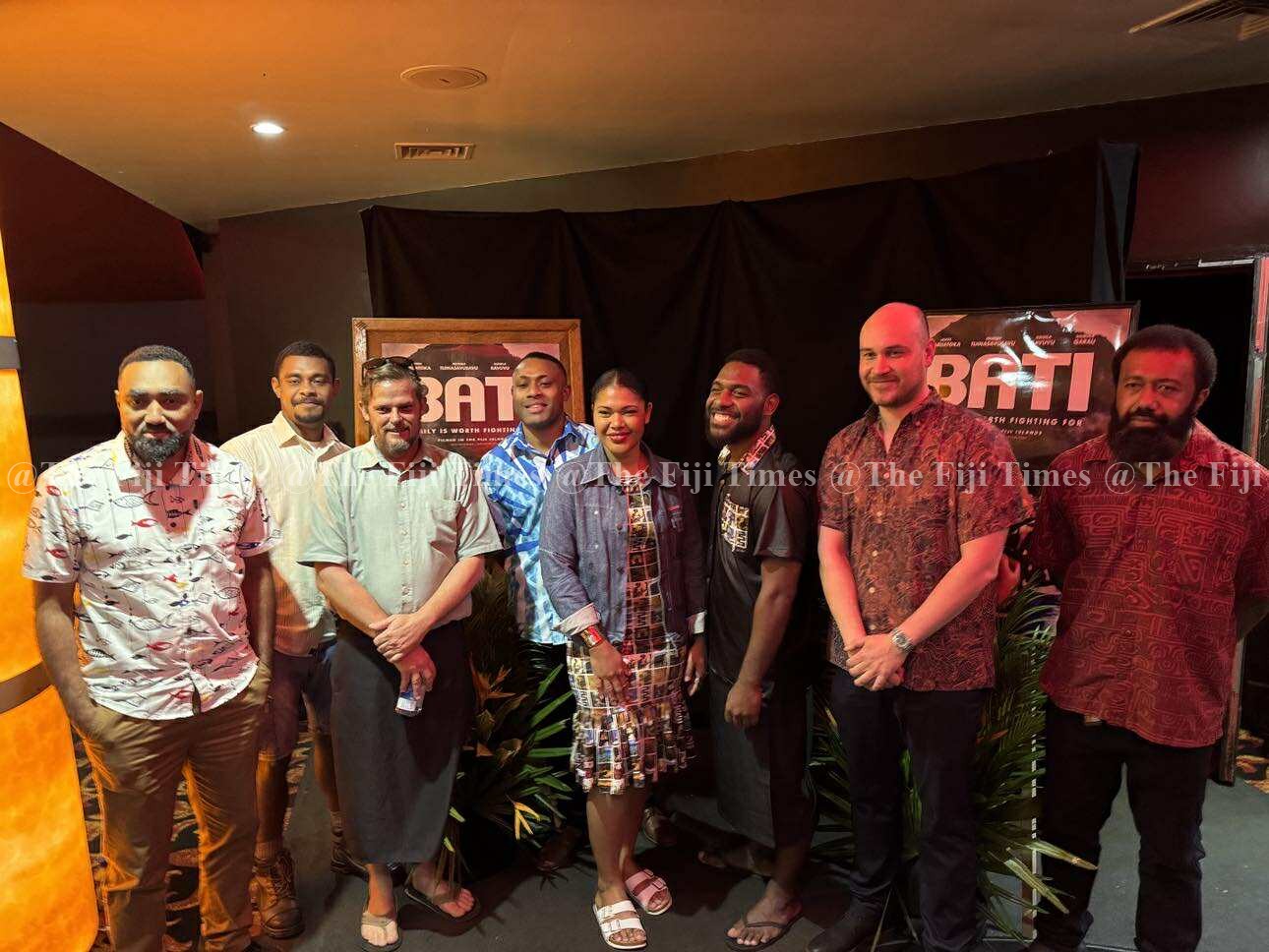BATI is a Fijian boxing drama about a humble security guard named Sam who dreams of becoming a professional boxer to provide a better life for his struggling family.
Set in Fiji, the film follows Sam (played by James Rabuatoka), a quiet and hardworking security guard who is trying to make ends meet. His life takes a turn when he decides to pursue boxing, not just as a sport, but as a way to lift his family out of poverty.
As Sam steps into the ring, he must navigate personal challenges, family responsibilities, and a society that often overlooks people like him. He is guided by coach Kali (played by Asesela Ravuvu), a tough but supportive figure, and is also motivated by his love interest, Rachel (played by Jedidiah Tuinasavusavu).
Born of limits
Tuvaluan-Scottish filmmaker Andrew John Fakaua Ponton, who directed and produced Bati, explained how the story came from a deeply personal place, shaped as much by creative vision as it was by practical limitations.
“I made this movie called Bati. It’s a boxing drama set in Suva and also set in Namosi,” Mr Ponton said. “There’s two parts to it. One was me just thinking about a movie that I could make that has a small cast and a small crew.” Having no major studio support or external funding, Mr Ponton worked with what he had.
And what he had, determination, passion, and a deep love for storytelling, was enough to build a film from the ground up. “I really thought about my own limitations and what was possible for me to make and what wasn’t.
“So from then I just started trying to come up with film ideas that were within my scope.” “I figured a boxing movie fit my goals, small cast, small crew. There’s about 50 cast in total, but most are background actors. The main cast is about four, with a supporting cast of another six.”
The story of Bati, at its core, is a story of resilience, on and off the screen. “It’s a movie about resilience, about being put in a hard situation and just having to live through it. I hope people leave with a sense of comfort in our ability to solve problems through our own families and communities.”
Six years of script to screen
According to Mr Ponton Bati was self financed and independently produced, with him wearing nearly every hat during the production process: writer, director, producer, editor, and even colour grader. “It was privately financed.
“There’s no big studio behind it. No film fund. It was hard for me to get financing, I’m a filmmaker from Tuvalu.” “We shot the film in about four or five weeks in August 2019. And then it took me six years just to edit and sound design the movie.”
“We’re working with low budgets, so I couldn’t afford to pay an editor, I had to do that myself. Same with the grading. It wasn’t easy.” Despite these challenges, Mr Ponton credits the local Suva based cast and crew for their energy, creativity, and commitment.
“I was very lucky to work with a local cast and crew here in Suva. “We had a small team of people who were really good at solving problems and working on this movie.” He also encouraged aspiring
filmmakers to make the most of free resources: “If you’re interested in filmmaking, I totally recommend learning on free applications like YouTube … Just practice making short movies with what you
have, even if it’s just your phone.”
The premiere of Bati
The official premiere of Bati was officiated by the Minister for Trade, Cooperatives and SMEs, Manoa Kamikamica who praised the film as a historic achievement for Fijian cinema. “The premiere of Bati marks a historical milestone in our country,” Mr Kamikamica said.
“This is the first Fijian feature film in more than two decades to be produced entirely by a local cast and crew.” He said Bati represents more than a film, it’s a landmark moment for Fijian creative industries.
“We believe it’s a landmark moment in our creative industry where every Fijian who believes in the power of storytelling has the platform to tell their story.” “For too long we have watched others create stories for us but this afternoon we will see something very different.
“We will witness our people, our landscapes come alive on the big screen in a way that belongs entirely to us.” Mr Kamikamica highlighted production’s grassroots nature with rehearsals at the Suva Playhouse and filming locations scattered from urban Suva to the hills of Namosi.
“What makes this day special is the knowledge that the people who made this film began with nothing more than a dream. Some dreamt of being actors, others filmmakers.
“This afternoon, those dreams are no longer dreams, they are a reality.”



